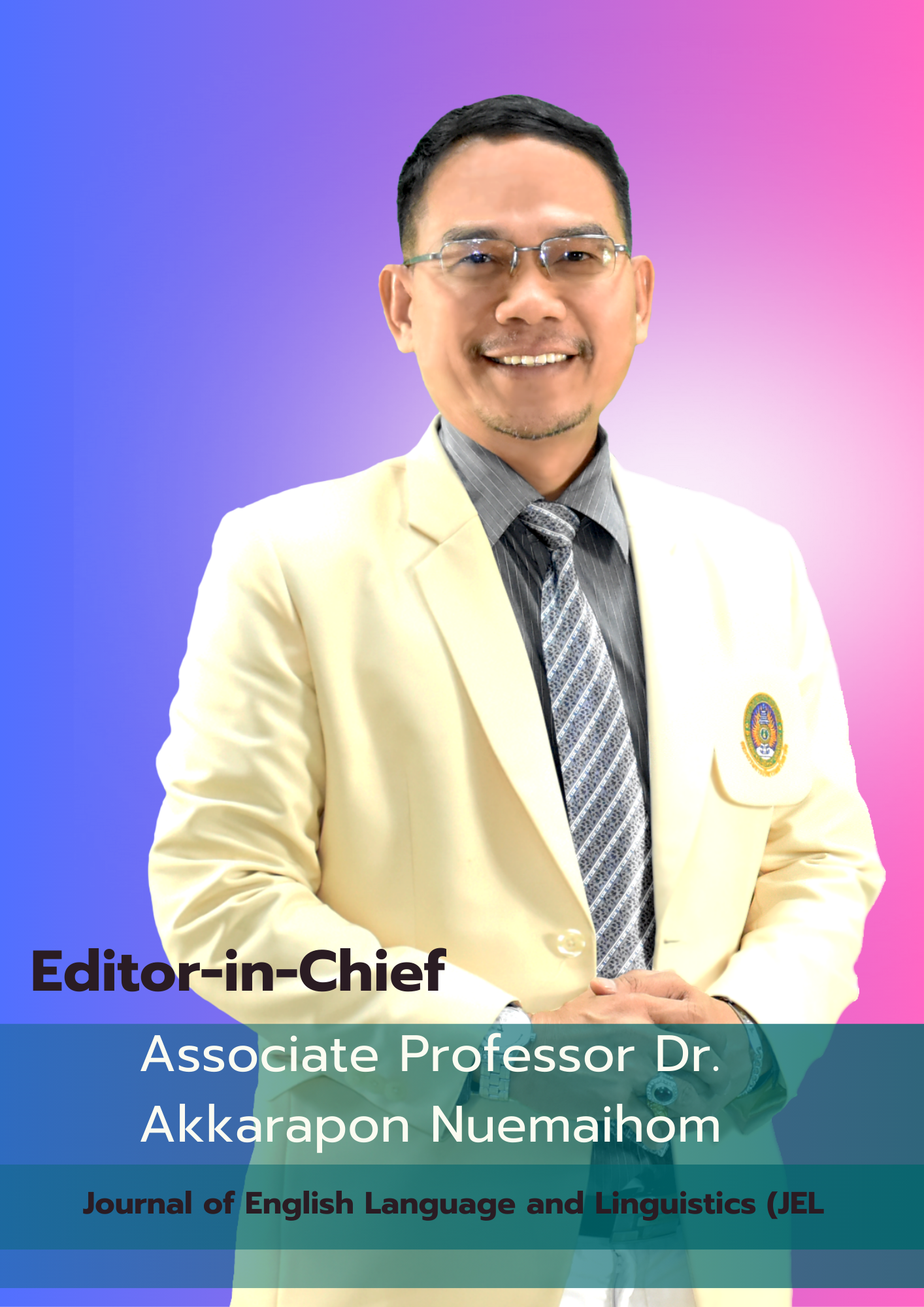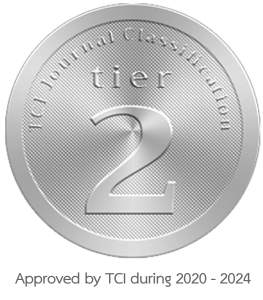Exploring pragmatics in King Bhumibol’s speeches on livelihood
DOI:
https://doi.org/10.62819/jel.2024.606Keywords:
contextual meaning, King Rama IX, royal speech, utterance meaningAbstract
This research article presented a pragmatic scrutiny of King RAMA IX's speeches from the Book of Nine Constitutions for Livelihood, produced by the National Research Council of Thailand (National Research Council of Thailand, 2008). This study aimed to analyze meaning theories in pragmatics, unveil utterance meanings, and probe contextual meanings. The scope involved analyzing the speeches independently, employing theories from esteemed intellectuals, and concentrating on pivotal terms like "speech by His Majesty the King," "royal word," and "tutelage." The research findings delved into theories of language interpretation and pragmatics, scrutinizing seven pragmatic theories to fathom King RAMA IX's speeches. Nine themes were analyzed across diverse contexts, accentuating unity, cooperation, and societal principles. Royal speeches on topics such as goodness, cooperation, and happiness were analyzed for nuanced connotations. Discussions aligned discoveries with study goals, underscoring the significance of linguistic and contextual factors in comprehending King RAMA IX's speeches. The contextual meanings of terms illuminated his legacy and societal advancement. Recommendations for applying his teachings in everyday life and for further research were provided to deepen insight into King RAMA IX's heritage and address contemporary challenges.
References
Abbott, B. (2006). Where have some of the presuppositions gone? In B. Birner & G. Ward (Eds.), drawing the boundaries of meaning: Neo-Gricean studies in pragmatics and theory in honor of Laurence R. Horn (pp. 1–20). John Benjamins.
Al-Hindawi, F. H. (2021). Deixis: A pragmatic perspective. The International Journal of Social Sciences and Humanities Invention, 8(6), 6488–6496.
Allott, N. (2010). Key terms in pragmatics (p. 17). Continuum International Publishing Group.
Ara, R. (2006). Wittgenstein’s concept of language games. Al-Hikmat, 26, 47–62.
Bonyadi, A. (2011). Linguistic nature of presupposition in American and Persian newspaper editorials. International Journal of Linguistics, 3(1), E4.
Brown, P., & Levinson, S. C. (1978). Politeness: Some universals in language usage (p. 101). Cambridge University Press.
De Vita, C. (2020). Karl Bühler’s fantasmatic deixis between motion, gestures, and words. Gestalt Theory, 42(3), 319.
Fakhruddin, M. Z. (2018). Reference and inference in English pragmatics. Universitas Muhammadiyah Sidoarjo.
Grice, H. P. (1957). Meaning. The Philosophical Review, 66(3), 377–388.
Grice, H. P. (1975). Logic and conversation. In P. Cole & J. L. Morgan (Eds.), Syntax and theory: Speech acts (Vol. 3, pp. 41–58). Academic Press.
Grundy, P. (2000). Doing pragmatics (pp. 31–32). Oxford University Press.
Hongladarom, S. (2010). Philosophy of language (p. 26). Bangkok: Chulalongkorn University Press.
Indrawati. (2022). Context in pragmatics. Language Circle: Journal of Language and Literature, 16(2), 31. Semarang State University.
Kövecses, Z. (2002). Metaphor: A practical introduction (pp. 10–12). Oxford University Press.
Lüpke, F. (2010). Research methods in language documentation. In P. K. Austin (Ed.), language documentation and description (Vol. 7, pp. 55–104). London: SOAS.
McGrath, M. (2002). Review: Scott Soames: Understanding truth [Review of the book Understanding Truth by S. Soames]. Philosophy and Phenomenological Research, 65(2), 410–417.
National Research Council of Thailand. (2008). The book of nine constitutions for living to follow in the royal footsteps of His Majesty the King. Amarin Printing and Publishing Public Company Limited.
Ngourungsi, K. (2016). Education for sustainable development (ESD). Journal of the Association of Researchers, 21(2), 14.
Ongwuttiwat, S. (2017). A pragmatics study of linguistic strategies: The royal tutelage of His Majesty King Bhumibol Adulyadej bestowed on graduation ceremonies (1950–1994). Journal of Romphruek, 35(3), 10–29.
Palawong, P. (2020). Introduction to theory (p. 35). Bangkok: Ramkhamhaeng University Publishing House.
Pearce, K. L. (2019). Berkeley’s theory of language (p. 19). Trinity College Dublin.
Puncharee, S., Cholthicha, S., Suwaree, Y., Salee, S., & Person, K. (2023). Discourse genre analysis of King Rama IX’s speeches given in graduation ceremonies of universities in Thailand. Journal of Humanities and Social Sciences, Suan Sunandha Rajabhat University, 6(2), 7–18.
Rungrojsuwan, S. (2022). Language and leadership: Key linguistic attributes and devices reflecting charismatic leadership of King Rama IX of Thailand. REFLections, 29(2), 381–401.
Sadeghoghli, H. (2016). Theories on politeness by focusing on Brown and Levinson's politeness theory. International Journal of Educational Investigations, 3(2), 26–39.
Searle, J. R. (1969). Speech acts: An essay in the philosophy of language (pp. 24–53). Cambridge University Press.
Sornsrisom, P., Sudmuk, C., Yodchim, S., & Person, K. (2023). The discourse analysis of information structure of His Majesty King Bhumibol Adulyadej the Great’s speeches on the occasion of His Majesty the King’s birthday. Journal of MCU Social Science Review, 13(6), 328–332.
Sukdee, J. (2016). The concept of sufficiency in sufficiency economy. Journal of the Association of Researchers, 21(1), 1–15.
Wittgenstein, L. (1958). Philosophical investigations (G. E. M. Anscombe, Trans.). Basil Blackwell. (Original work published 1953, p. 103)
Yule, G. (1996). Pragmatics. Oxford University Press.


















